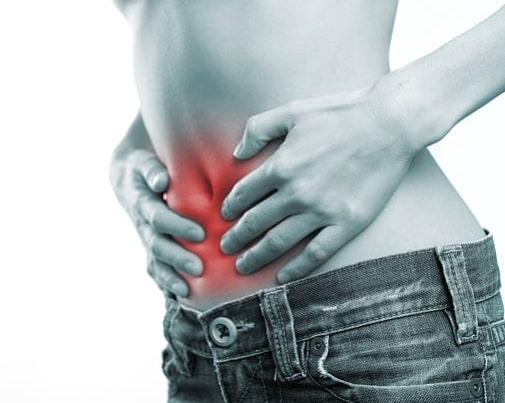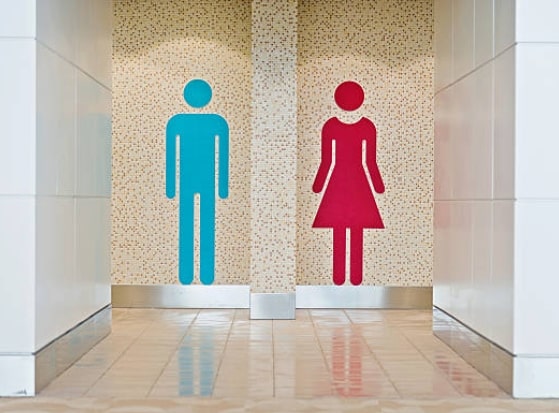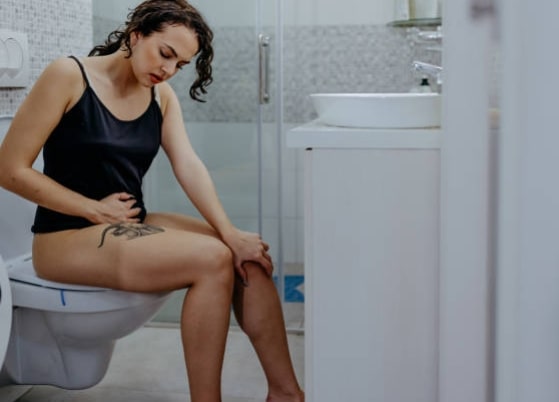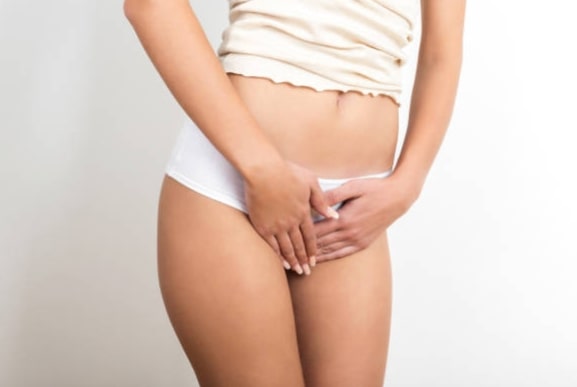Cystitis and incontinence have long been recognized and viewed as primarily female health problems. But scientists have noticed over the past two decades that more and more healthy men and children are beginning to suffer from it.
What caused this? Let’s start by explaining what the medical problem is. Cystitis is a bacterial infection of the lining of the bladder. It is mainly caused by E. coli bacteria. Other reasons for its occurrence can be reactions to certain medications, contraceptives, inappropriate products for intimate hygiene, and the use of a catheter.
In most cases, bladder infections and incontinence can be treated with home remedies. You can also strengthen your health by taking herbal preparations. Today, the market offers a wide range of products that can help you relieve symptoms and achieve normal urination.
What are cystitis and incontinence? Why do women suffer from it more often than men? How to treat their symptoms with home remedies? What are the best natural products to get rid of bladder infections? What personal hygiene measures to take to stay healthy and clean? How to prevent the problem?
Find out all about cystitis and incontinence in the following article!
What are cystitis and incontinence?

Cystitis and incontinence can occur due to the following reasons:
- Inadequate personal hygiene. This means that you wash your private parts too often or too little. Poor hygiene leads to the proliferation of a wide range of bacteria and this is a factor in the development of infections. On the other hand, the urogenital area has its protective microflora of beneficial bacteria. If this area is continuously disinfected with gels, soaps, and other disinfectants, this leads to a violation of the living protective barrier.
- sexual contacts. Cystitis is not sexually transmitted. But it’s good to wash and shower immediately after having fun between the sheets. This will remove the bacteria that have entered the urethra.
- Insufficient fluid intake. Urine has a purely mechanical cleaning effect on the urinary tract. If there is little of it, conditions are created for the retention of bacteria.
- Gastrointestinal problems. Diarrhea and constipation are the cause of the development of cystitis due to the spread of intestinal bacteria in the urogenital area.
- Catheterization, trauma, cystoscopy, and surgical procedures. Placing a urethral catheter or performing a procedure through the urethra can cause bacterial infections.
- Diabetics excrete glucose in their urine, which is a wonderful breeding ground for microorganisms.
Cystitis and incontinence are among the most common and troublesome urological diseases. Essentially, it is inflammation of the mucous membrane of the bladder. They can be chemical, radioactive, or bacterial, with the latter being the most common. In these cases, pathogenic bacteria get into the bladder. There they develop and show the first symptoms of the disease. Under normal circumstances, this site lacks bacterial flora. A large number of microorganisms, getting into them, invariably leads to the occurrence of the so-called acute cystitis. The most common cause of its development is intestinal bacteria.
This disease affects all age groups from children to the elderly. Statistics show that an average of 30 to 50% of the population suffer from urinary tract inflammation. Women get sick up to 3 times more often than men. This is due to their shorter urethra, which is a prerequisite for the easier penetration of disease-causing bacteria. Be sure to take care of yourself. Many natural supplements work to treat the symptoms and causes of cystitis.
Why do women suffer from cystitis more often than men?

These are some basic facts every woman should know about cystitis:
- About 1 in 3 women will have at least one episode of cystitis in their lifetime. Very often the condition recurs.
- About 81% of all cases of urinary tract infections affect women.
- More than 27% of women with a UTI episode will experience another episode within the next 6 months and 48% within the next year.
- Sexually active women have a higher risk of STIs (sexually transmitted infections) than other members of the gentler sex.
- Women are more prone to bladder infections because of the size and location of the urethra in their body.
Cystitis is a disease that almost every woman has encountered and is an inflammation of the lining of the bladder. Urethritis, which can develop alongside or independently of cystitis, is an inflammation of the urethra. According to statistics, every fourth woman suffered from cystitis at least once in her life. Due to anatomical peculiarities, women suffer from such infections more often than men. Your urethra is shorter, wider, and located near the vagina. Combat the symptoms of cystitis by taking a natural dietary supplement.
In women, the anatomical features and location of the urethra are prerequisites for the development of a bacterial inflammatory process. Cystitis is the most common bacterial infection, caused by Escherichia coli in 80% of cases. Unfortunately, due to the high prevalence of the bacterium, some strains are beginning to develop resistance to antibiotics.
3 main types of bladder infections – how to recognize them

These are the 3 main types of cystitis and how to tell the difference between them:
- Acute cystitis. It is characterized by an uncontrollable painful urge to urinate and irritation when urinating. While this may sound frightening, it is a short-term problem. Although it presents with more severe symptoms, acute cystitis goes away relatively quickly. It usually takes a few days to a week, and this time can be significantly shorter with home remedies. However, if timely measures are not taken, it can develop into a chronic one. Treat it by taking the natural product.
- Chronic cystitis. It occurs with slightly milder symptoms. It is usually not characterized by pain but by constant discomfort and sporadic situations of exacerbation. This depends on environmental factors and the general health of the patient.
- Secondary cystitis. It is an infection that arose as a result of another disease as a complication. This complication lasts for months. The solution is usually to address the underlying condition that caused the inflammation. In the meantime, it is good to use home remedies for cystitis or another form of homeopathy to relieve the symptoms of the disease. The same is also true for men with chronic prostatitis and BPH.
How to treat cystitis symptoms with home remedies
Cystitis is nothing new in our world. Our grandmothers and great-grandmothers experienced it many times and were able to use herbal and home remedies successfully. The most effective trick to relieving pain and swelling in the lower abdomen is to apply heat. This can just be a warm towel or a hot water bottle. Homeopathy recommends consuming cranberries for cystitis.
If you want to successfully use home remedies for cystitis, you need to wear light, cool, and loose clothing. Also, make sure you have underwear that doesn’t put pressure on your stomach or genitals. The next step in treating cystitis at home is to increase fluid intake. Water should be taken continuously in small sips. Liquids such as coffee, alcohol, and citrus juices should be avoided. They can significantly worsen the pain and the urge to urinate and sabotage the measures already taken.
How to prevent cystitis and incontinence – some useful tips

These tips will help you prevent the development of cystitis and incontinence:
- Drink plenty of water. This is even more important if you are undergoing chemotherapy or radiation therapy, especially on the days of your procedures.
- urinate frequently. If you want to go to the toilet, don’t hesitate.
- After using the toilet, wipe from back to front. This way you reduce the risk of bacteria being transferred from the anus to the vagina and urethra.
- Better the shower than the bath. If you are prone to infection, the bathtub is not the best choice for you. Bacteria spread there and develop easily.
- Thoroughly wash the intimate area around the vagina and anus. Do it every day and choose to give up delicate personal hygiene products to harsh soaps and
- leave shower gels. Use gentle movements as this area is particularly prone to irritation. This will also help you prevent rashes.
- Avoid artificially scented personal hygiene products and deodorants. They can irritate the urethra and bladder.
- Go to urinate as soon as possible after intercourse. This way you reduce the risk of stagnation of bacteria that may have got into the urethra.
Recognizing the first symptoms of cystitis
These are the most common symptoms of a bladder infection:
- pain, burning, or stinging during urination or sexual contact ;
- More frequent and urgent need to urinate than normal;
- Dark, cloudy, or strong-smelling urine;
- pain & tension in the lower abdomen;
- General malaise, pain, and weakness;
Cystitis is an extremely unpleasant health problem. It causes constant discomfort to the patient. Symptoms are characterized by a constant urge to urinate and swelling in the abdomen. When urinating, extremely severe pain is observed. Patients often describe it as a feeling of shearing. The urge to urinate is so frequent that it is often a false alarm, but it is always accompanied by the sharp pains mentioned above.
It increases with each subsequent attempt to urinate. Symptoms can be stopped or significantly alleviated by homeopathy or by taking natural dietary supplements. Be sure to wash carefully after moments of intimacy. This will help prevent the disease from developing. Take care of your body and love it fully!
Good hygiene protects you from bacterial infections

More than ¼ of the world’s female population has suffered from the uncomfortable symptoms of cystitis and incontinence. Avoid becoming part of that statistic by following some basic hygiene measures. Wash carefully and always wipe properly. Shower after intercourse.
Eating a healthy diet and regular exercise will also help you avoid bacterial infections. A mineral-rich diet promotes drainage and detoxification. They will flush away the bacteria present in the system and normalize urination. In addition, use natural products that do not irritate the organs. Love your body so it loves you back!



